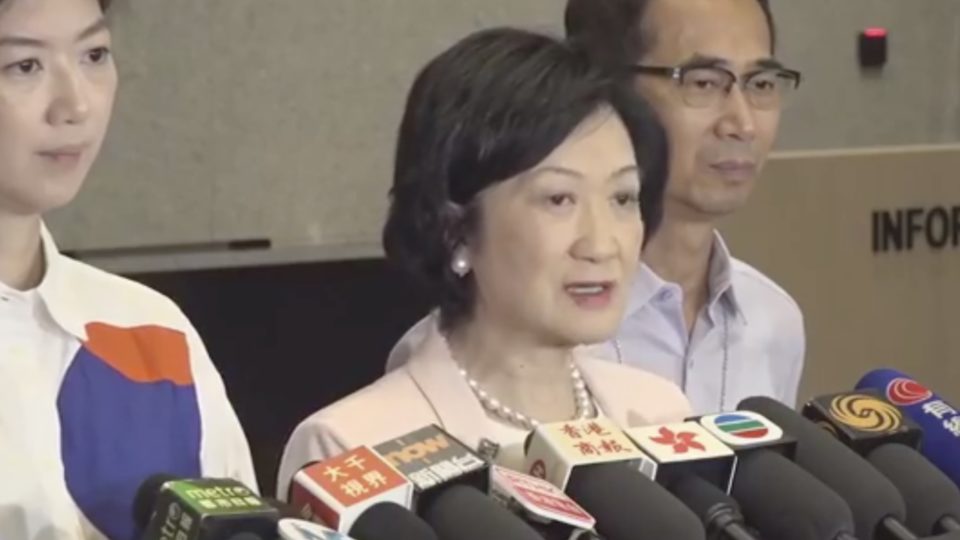As the sage Barrett Strong once said, “I need money; that’s what I want.”
A pro-Beijing political party is now apparently hoping that sentiment equally applies to disaffected Hongkongers, suggesting today the authorities give a HK$8,000 cash handout to residents in hopes of easing ongoing social tensions — while also insisting the plan had nothing to do with upcoming elections. (Perish the thought!)
Taking credit for the bright idea is the New People’s Party, whose chair, Regina Ip, told reporters that the sweetener should be disbursed to all of the city’s adult permanent residents, regardless of their income level.
Ip — flanked by the party’s three deputy chairs, Johnny Hon, Pun Kwok-shan, and Eunice Yung — told reporters that the party had requested a meeting with Financial Secretary Paul Chan ahead of the announcement of the next budget in February.
Cash handouts are not uncommon in Hong Kong, where the government often runs a budget surplus. However, the schemes have often been mired in complaints of complicated and cumbersome application procedures, and panned by critics who say that the surplus would be better spent on things like public health and education.
Ip said today that the idea to offer a cash handout was prompted by the likelihood of an economic downturn due to the prolonged China-US trade war, predictions of sluggish growth by economists, and the knock-on effects on tourism and business caused by the city’s long-running anti-extradition protests.
Ip added that she believed Hongkongers wanted to restore peace and stability to the city, maintaining that most people won’t use the handout to “buy helmets and shields.” (Gee, way to get the disaffected masses on side, Regina…)
She pointed to a previous cash handout for Hongkongers in 2011, when permanent residents were offered HK$6,000 each. After original plans to inject the payout into people’s pensions proved “highly unpopular,” she said, then-Financial Secretary John Tsang — the former chief executive contender and Pringles man lookalike — decided to convert it into a cash handout.
She said that the handout would “certainly help people feel happier.”
“When they received the HK$4,000 despite a lot of hassle, they were happy,” she added, referring to last year’s handout scheme, for which some 2.8 million Hongkongers were eligible (provided they didn’t own property, didn’t receive welfare, and didn’t pay taxes) — and which was riddled with hiccups and dogged by criticism.
Ip and company were quick to deny suggestions by reporters that the move was related to upcoming district council elections in November, and Legislative Council elections next September, at one point admonishing a reporter: “Don’t always think that it’s about the elections.”
However, with anti-Beijing sentiment running at a fever pitch, Ip’s New People’s Party is certainly going to face a less-than-favorable environment at the polls.
The party currently has 16 district councillors, and Ip and Yung are its only two lawmakers, with both representing geographical constituencies with greater potential for being unseated than the typically more establishmentarian functional constituencies.
Indeed, Ip has not ruled out the possibility of running for a district council seat in this year’s elections in hopes of securing eligibility for a so-called “district councillor super seat,” a functional constituency made up of lawmakers who are also district councillors.
Ip, however, would face a crowded field in such a race, with most pro-Beijing strongholds already claimed by other candidates, and victory in a pro-dem district a shaky proposition at best, particularly given the current political climate.




